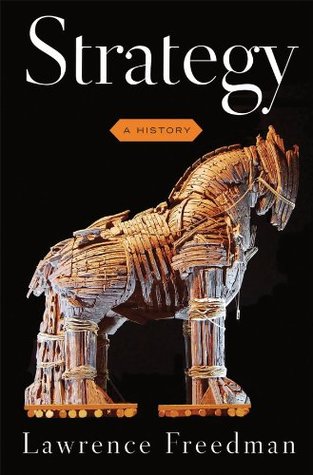More on this book
Community
Kindle Notes & Highlights
The British essayist George Orwell actually used the term before Lippmann, in October 1945, as he tried to assess the impact of atom bombs on international affairs.
He saw, however, that while such a war was possible, this might be avoided as a result of “a tacit agreement never to use the bomb against one another.” Use would only be threatened against those unable to retaliate.
The question of what strategic purposes these new weapons could serve was first addressed seriously by historian Bernard Brodie, who had previously specialized in maritime strategy. On hearing of the atom bomb, Brodie told his wife, “Everything that I have written is now obsolete.”
From the start, therefore, Brodie recognized the dissuasive character of the “absolute weapon.” Political communities would be wary about using a weapon against others that could also wipe them out if used against them.
“The purpose of soldiers is obviously not to produce books,” he remarked in a 1949 article, “but one must assume that any real ferment of thought could not have so completely avoided breaking into print.” Military training, he suggested, discouraged contemplation, was anti-intellectual, and focused excessively on practical matters and command issues.
Just as the economist sought to utilize the total resources of the nation to maximize its wealth, the strategist sought to use the same resources to maximize the total effectiveness of the nation in war. As all military problems were about economy of means, a “substantial part of classical economic theory is directly applicable to problems of military strategy.” In particular “a science like economics” could show the way to a “genuine analytical method.”
During the course of the war, operations research—as the new field came to be known—made major strides in support of actual operations, including working out the safest arrangement for convoys in the face of submarine attack or choosing targets for air raids.
Mathematicians and physicists made more of an impact in the United States, notably those who became involved in the Manhattan Project, the organization which had led to the production of the first atomic bomb.
The center for the postwar application of such methods to practical, and particularly military, problems was the RAND Corporation, which became the prototypical “think tank.” The organization was set up un...
This highlight has been truncated due to consecutive passage length restrictions.
Sharon Ghamari-Tabrizi describes RAND as fashioning itself as a cold war avant-garde, self-consciously exploratory and experimental, with an “insouciant disregard” for traditional forms of military experience.
The new universe that was explored at RAND was simulated as much as observed. Philip Mirowski describes what he calls the “Cyborg sciences.”
RAND analysts saw these new methods as supplanting rather than supplementing traditional patterns of thought.
As one of the first textbooks on operations research noted, work of this sort required an “impersonal curiosity concerning new subjects,” rejection of “unsupported statements,” and a desire to rest “decisions on some quantitative basis, even if the basis is only a rough estimate.”
The reason for the ascent of strategic man, he suggested, was nuclear weapons. Strategy could no longer be solely concerned with how to fight war as an instrument of policy but also had to understand how to threaten war.
Now that John F. Kennedy had become president, civilian strategists had “entered the citadels of power and have prevailed over military advisers in major issues of policy.” Neither the military nor the civilians had any experience of the conduct of a nuclear war, so inevitably much strategic thinking was of an “abstract and speculative character,” which suited the civilians.
The key people in this new approach had largely come from RAND. They were led at the Pentagon by a secretary of defense, Robert McNamara, who had pioneered the use of quantitative analysis while at the Ford Motor Company.
They were smart, brash, confident, and dismissive of the faltering attempts of military officers to block their ascent.
Disregarding the preferences of the armed services, McNamara canceled favored programs and challenged cherished beliefs.
It became a truism that McNamara’s methods were inappropriate for fighting a war, especially one as politically complex as Vietnam, and failure here sullied his reputation forever. Yet for the first part of his tenure in the Pentagon, McNamara was considered to be the most gifted and effective member of the cabinets of Kennedy and then Lyndon Johnson.


